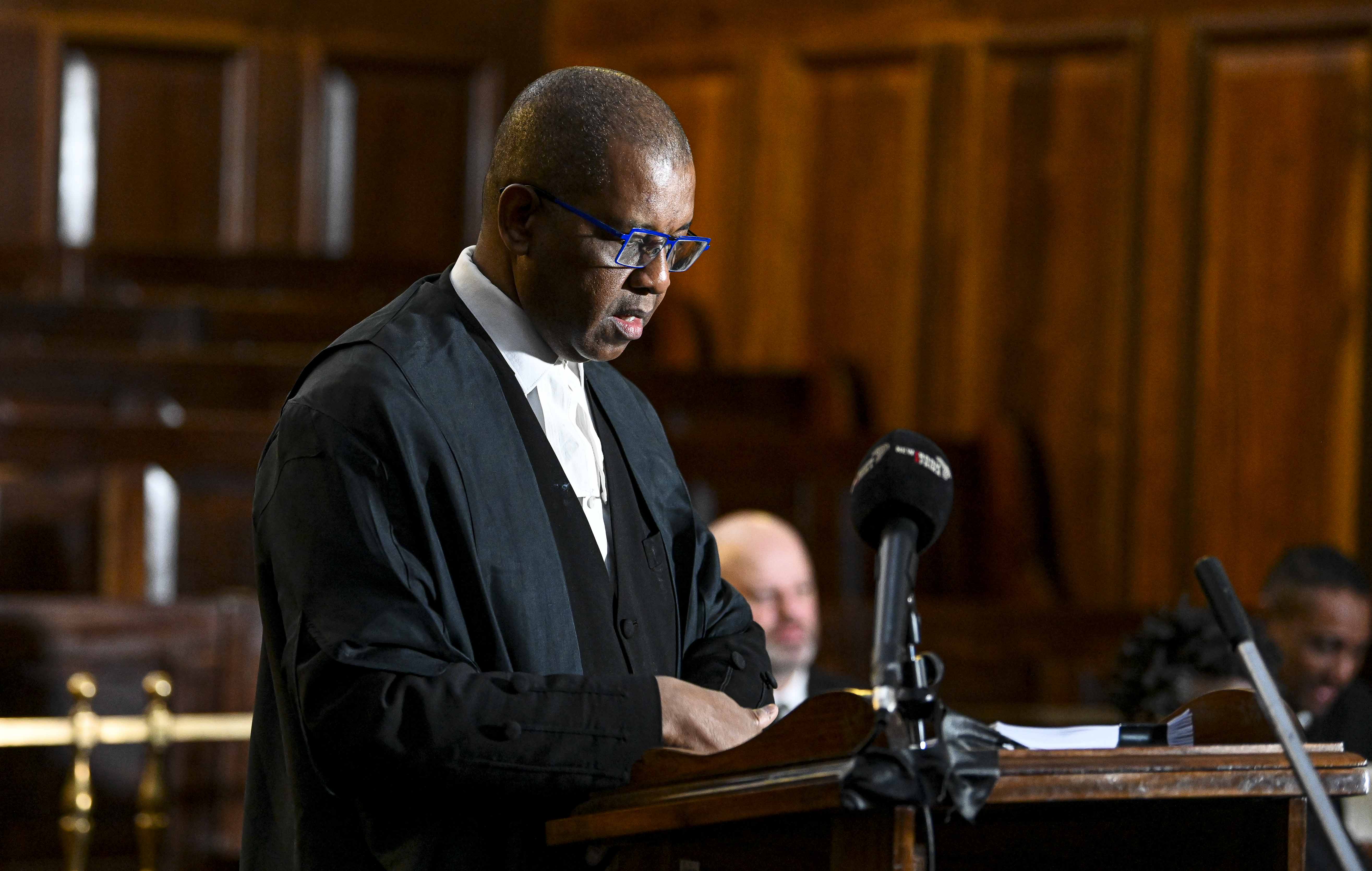ANALYSIS
Cadre deployment — a powerful and lasting bone of rolling political contention

The issue of cadre deployment, as practised by the ANC, is again dominating the national discussion. While judges have ruled the ANC’s policy is legal, the release of its minutes of the discussions about deployment decisions has the potential to embarrass the party. Coming so close to the elections, this may boost the DA’s electoral prospects. More importantly, it will force more transparency in the process of making government appointments.
Last week, judges in the Gauteng Division of the High Court in Pretoria ruled: “The ANC, like any other political party, is entitled to influence government decisions, including the appointment of senior staff of public administration, as long as the bright line between state and party is observed. It goes without saying that influencing government decisions is not the same as political meddling in the affairs of government.”
This would appear to end the DA’s hopes of ever winning a ruling that cadre deployment is unconstitutional.
Of course, the party says it is going to appeal.
It may base the appeal on the finding by Chief Justice Raymond Zondo, in his capacity as chair of the Zondo Commission, that the ANC’s policy of cadre deployment was unconstitutional and that the party’s deployment committee had no reason to exist.
Many will feel that cadre deployment is a legitimate policy. What is the point, they may ask, of going into politics, of winning an election, if you cannot influence who works in the government? And a person who belongs to an organisation with opposing views, such as, for example, AfriForum, can’t be trusted to work for an ANC-led administration.
However, it’s not just the governing party that practises cadre deployment. Evidence has emerged of how the DA’s Federal Council insisted on approving certain appointments to positions in the Western Cape government and some councils.
This is an issue on which governance experts can strongly disagree.
‘Tantamount to apartheid’

Sandile Swana. (Photo: X)
Two weeks ago, the governance expert and academic Sandile Swana argued passionately on SAfm that cadre deployment was tantamount to a form of apartheid.
He said many black people “have been subjected to apartheid by the ANC. Apartheid in the sense that there is job reservation against the existing Constitution in favour of those who are known to be loyal members of the ANC. This has not just affected white South Africans or any other type of South Africans, but black South Africans who are not known to be supporters of the ANC have been excluded from jobs that they are fully qualified to do.”
This is powerful language that may well resonate with voters.
But Dr Seleen Naidoo from Public Ethos Consulting has a different view.
He suggests that governing parties in every country around the world have the right to practise cadre deployment.
He says there are many examples in which ANC ministers appointed non-ANC members to important positions, including André de Ruyter being appointed as CEO of Eskom and three DA members being named as ambassadors.
At the same time, there is anecdotal evidence that even a job appointment for a cleaner in a council building can be discussed at an ANC branch meeting.
Whatever the rights and wrongs, or your view on the subject, for a person desperate for such a job to hear that their candidacy is being discussed by a political party to which they do not belong, is disheartening.
Deeper within this argument are questions about how cadre deployment is practised, what decisions are made and which positions are discussed.
Some of this is now being revealed after the partial success of the DA’s application for the records of the ANC’s deployment committee.
While the DA had applied for all of the records of this committee from January 2013 to January 2023, for the moment it appears to have only received records from 2018 to 2023.
Potential to damage ANC
The minutes of these meetings were made public before when the ANC submitted them to the Zondo Commission. However, new information has emerged, including letters, CVs and WhatsApp group discussions.
These records could contain ammunition that causes significant damage to the ANC or one of its leaders.

Dali Mpofu. (Photo: Gallo Images / Volksblad / Mlungisi Louw)
For example, during the Marikana Commission, advocate Dali Mpofu was able to focus on a phrase President Cyril Ramaphosa used while a board member at Lonmin in an email to then police minister Nathi Mthethwa demanding he act against a violent strike. As a result, the phrase “concomitant action” became a political weapon against Ramaphosa. Mpofu tried to use this to blame Ramaphosa for the massacre of striking mineworkers that followed.
Ramaphosa faces another risk.
If the minutes or other recordings of the earlier period when Ramaphosa chaired the committee do emerge, they could shine a harsh spotlight on the role he played.
It was during this time that State Capture, often through deployees in the government, moved into a higher gear. And, considering Ramaphosa’s near-silence during this time, if evidence emerges that he allowed or enabled such appointments, this could be very damaging to him.
It could get to the heart of the question of what he was doing as Deputy President while Zuma was enabling State Capture.
In the meantime, it should not be underestimated how much will now change.
In the past, the ANC refused to release, or even discuss, what happened at meetings of its cadre deployment committee.

ANC chairperson and former party secretary-general Gwede Mantashe. (Photo: Gallo Images / Darren Stewart)
In 2011, when the late journalist Karima Brown publicly told then ANC secretary-general Gwede Mantashe she knew the deployment committee had selected Siyabonga Gama for the position of Transnet CEO, you could have heard a pin drop. It was a shock for most people in the room to hear anything about the machinations of this committee.
The ANC strongly opposed the DA’s application to force the release of the documents.
Once the DA started to publish the records on its website, the ANC tried to jump the gun and posted the documents on its website (these two parties are determined to compete in everything).
It challenged the DA to release the records of its own deployment meetings.
This sets a precedent. The DA will continue to ask the ANC for its deployment records for every future meeting and probably every future deployment. The ANC will do the same to the DA.
It will be easier for parties to simply publish these documents themselves on a regular basis. The same could happen with other parties if they start to have a greater role in making appointments.
If this does force all cadre deployment processes to become more transparent, parties may find it easier to have fewer formal meetings and structures and to use more informal means to avoid scrutiny — in the process, altering cadre deployment itself. DM






 Become an Insider
Become an Insider
The practice is not only totally undemocratic it spits in the face of the constitution. It’s all about control and manipulation. The party faithful however incompetent (and recycled) will take precedence over the brightest and best candidates.
Like the influence by the CEO of a company on policy, the role of the cabinet minister in stating ANC/government policy in the state departments is widely accepted. But that is not cadre deployment.
Employees are employees. They are bound to follow company policy. If they refuse, they can be dismissed.
But cadre deployment is like the CEO referring all key employment positions in a company to a secret business club to ensure the positions are filled by friends and families of the business club. That would probably be deemed as an unfair labour practice especially if a more competent applicant is overlooked. And also illegal if the deployees behaviour results in theft and corruption with the proceeds of the corruption flowing to the business club.
But cadre deployment also explains why our cabinet ministers are so utterly useless. Because if their role of setting policy is usurped by hundreds of deployees all busy stealing what they can without any consequences, who cares about policy?
It’s like the education minister trying to in-still policy through headmasters at schools but cadres are involved in murdering the good headmasters and then selling the posts to the highest bidder for money.
As has been pointed out, it is perfectly reasonable for a political party to favour public-sector job candidates who support the policy positions of the party. But by implication it is only reasonable if the candidate is also properly qualified for the job concerned.
The missing point in this article is that although the ANC has allegedly appointed cadres who have no or little qualification for the job, there has never been a suggestion that the DA would appoint an unqualified person, party supporter or not.
Exactly
Maybe sowhow I missed it, but did Stephen Grootes write an entire article about cadre deployment without mentioning competency and meritocracy once? Deploying people that represent your political party to political positions was never the issue. The issue here is deploying incompetent or unsuitable candidates to positions that require skills, such as SOEs (ESKOM, Transnet) or portfolios they have no expertise in (water, health, education). It is exasperated by the fact that incompetent or influenced people remain in their positions for years even after failing miserably, like for instance Cele or Dudu Myeni. Finally even if a cadre is finally removed, they somehow seem to be recycled to another position.
I am sure you will find the one or other example in the DA of what may look like cadre deployment, but there is absolutely no equivalence to what the ANC has practiced over at least 20 years.
Thank goodness it’s all far from over, there will be appeals and now with the new evidence it may be an entirely different case!
Exactly. It is alarming that Grootes still doesn’t get it.
What did you expect?… he writes for DM
Note all the “unbiased” commentators here.
I have no issue with bias, but leaving out a critical argument completely as a journalist just because it doesn’t fit into the overall message you want to send goes well beyond bias.
The difference between right and wrong argued at length by high- paid lawyers.
The issue is simple
can you imagine an advertisement in the employment opportunities section of the press?
Wanted: XYZ Expert. Requirements: Degree in XYZ. 5 to 10 years experience in XYZ. Must be an ANC member.
Surely that is unconstitutional?
Except that at the moment, if a potential candidate fulfils the “Must be an ANC member” criterion, it seems that the other requirements ito XYZ Expert, Degree in XYZ and 5 to 10 years experience in XYZ immediately falls away!
Cadre deployment is perfectly acceptable in Political Roles, because voters can vote them out if they don’t perform. However, it is completely unacceptable in Public Service appointments. In those cases we want the best possible person to do the job, precisely because we can’t vote them out if they don’t perform.
The DA should request the ANC deployment minute (from chief justice Zondo?) before each JSC sitting to select judges. Why such a sitting whatsoever ( as prescrbid by the constitution), including all the millions it costs, if the judges are anyway selected by the ANC deployment committee. Yet Groottes thinks it’s all fine . .
I think it’s disingenuous to say that other countries do the same thing as the ANC. I have experience of the US political system, and there, cadre deployment is vastly different. The first difference is that it’s not the party that makes the appointments in the executive branch, it’s the White House. Of course, political parties in the US are different animals to the ANC, but although they have input into major appointments, it’s up to the president and his staff. The second difference is that the statutory civil service is protected from interference by law. Once you’ve got a job, you can’t be fired for arbitrary reasons. That doesn’t mean it’s employment for life, it just means that people who can do the job well won’t get fired just because they aren’t from the right party. It’s precisely that law that Donald Trump wants to change so that he can do what the ANC does—influence civil service employment from top to bottom to serve his own interests. In any case, comparing the ANC’s practices to Western democracies is inappropriate, since it thinks of itself and is explicitly modeled on totalitarian democratic centralist parties like the Soviet and Chinese Communist Party.
Wonder why the Zondo Commisions findings own decleration of cadre deployment was not considered on agreeing with DA that cadre deployment should be ruled unconstitutional …….. it makes one ponder… WTF not !!
Short summary : it can never be right to appoint A (loyal cadre) over B (more competent).
I get political roles like mayors. It should be illegal for technocrat positions.
I think most citizens want the civil service, whether at municipal, provincial or national level, to be three things:
1. Professional,
2. Capable, and
3. Politically untouchable (except through processes guided by enacted legislation & published regulations).
As long as (1) and (2) are not near-universally present, the temptation to ignore or circumvent (3) will exist.
I find the Pretoria High Court’s ruling to be paradoxical. Perhaps the Honourable Judges could explain to us in greater detail how they envision such expansive influence over the civil service and such separation between party & state to happen simultaneously.
I also found the phrase “the bright line between state and party” to be quite oddly applied. In legalese, a “bright line” rule is is a clearly defined criterion/standard, composed of objective factors, which leaves little/no room for varying interpretation, with the purpose of producing predictable & consistent results when applied. (One classic example is the Massachusetts Supreme Judicial Court establishing a bright line of an age difference of 5+ years for a valid workplace age discrimination suit to be launched, after its review of a case where the defendant’s new employee was a mere 28 months younger than the ex-employee who launched the suit.) When and where, then, was the supposed bright line rule (i.e. an empirical and objective criterion) established for evaluating the separation between party and state that this judgment is referring to?